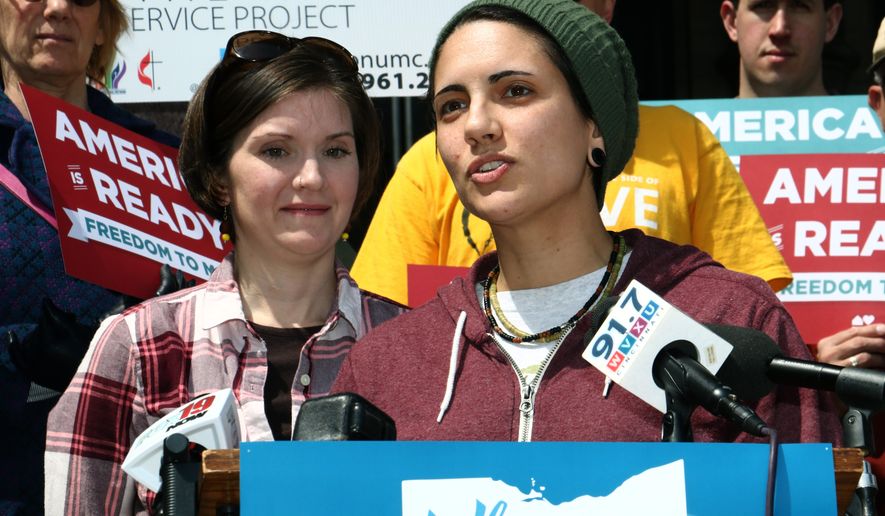The Supreme Court is scheduled to hold oral arguments on gay marriage cases from Michigan, Kentucky, Tennessee and Ohio on Tuesday.
Here are some details, as offered by Jon W. Davidson, national legal director of Lambda Legal, about how the arguments with the cases, known as Obergefell v. Hodges, should proceed.
Arguments will begin at 10 a.m. and last 2 hours. A transcript and audio recording of the oral arguments should be available after 2 p.m.
The first 90 minutes of argument will be allotted to the high court’s first question, “Does the 14th Amendment require a state to license a marriage between people of the same sex?”
Mary L. Bonauto, director of the Civil Rights Project at Gay and Lesbian Advocates and Defenders, will speak first and argue for about 30 minutes on behalf of the same-sex couples seeking to marry in Michigan and Kentucky.
U.S. Solicitor General Donald B. Verrilli Jr., will speak for 15 minutes, also in favor of all states legalizing marriage for same-sex couples.
John J. Bursch, special assistant to the attorney general of Michigan and former state solicitor general, will have 45 minutes to argue that states have legitimate and constitutional reasons to craft their own domestic laws, including those governing marriage.
Ms. Bonauto can use any reserved time for a rebuttal.
Different attorneys will then argue the second Supreme Court question, “Does the 14th Amendment require a state to recognize a marriage between two people of the same sex when their marriage was lawfully licensed and performed out of state?”
Douglas Hallward-Driemeier, a partner at Ropes & Gray law firm and head of their Supreme Court practice, will have 30 minutes to argue on behalf of gay couples in Tennessee, Ohio and Kentucky who want recognition for their out-of-state legal marriages.
Joseph F. Whalen, associate solicitor general of Tennessee, will have 30 minutes to defend states’ rights to set their own domestic policy, including recognition of foreign marriages.
Mr. Hallward-Driemeier can use any reserved time for a rebuttal.
A decision is expected by the end of June in the cases, which include James Obergefell v. Richard Hodges, director of the Ohio Department of Health; Valeria Tanco v. Bill Haslam, governor of Tennessee; April DeBoer v. Rick Snyder, governor of Michigan; Gregory Bourke v. Steve Beshear, governor of Kentucky.
• Cheryl Wetzstein can be reached at cwetzstein@washingtontimes.com.




Please read our comment policy before commenting.